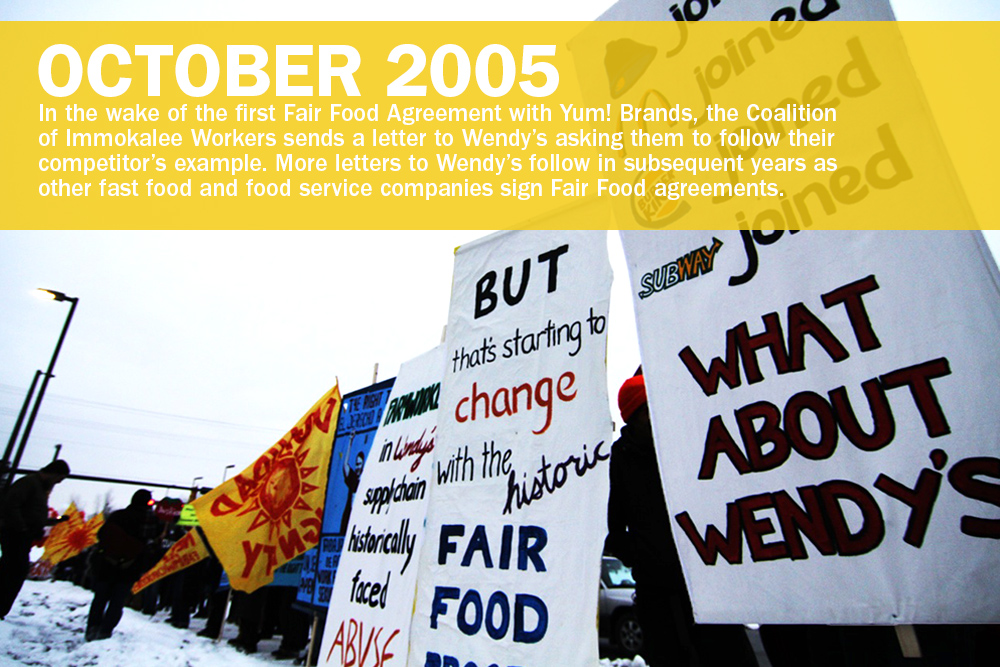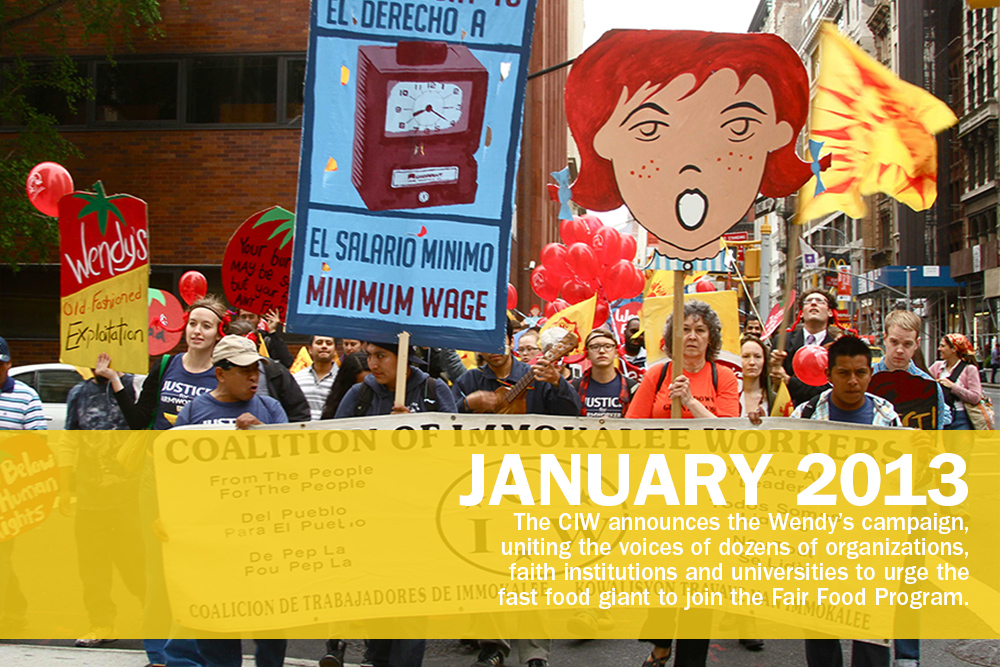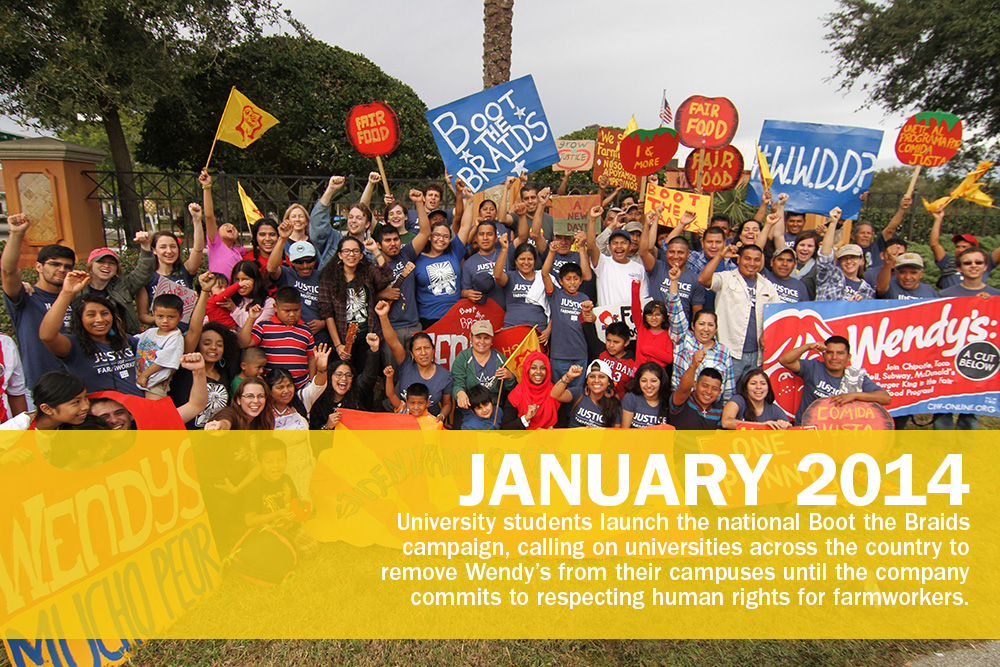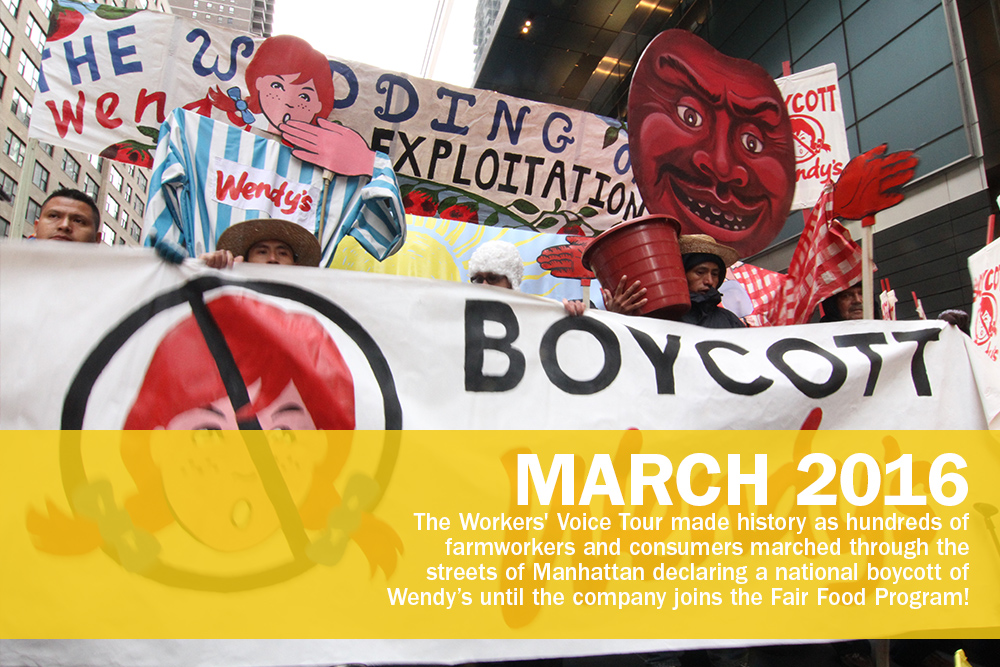WHY BOYCOTT WENDY'S?
1) Wendy's abandoned the Florida tomato industry for GreenHouses outside of the FFP
Wendy's has released misleading statements, including the claim that greenhouses have "inherent benefits of safe, indoor working conditions,” known to be false by farmworkers. This shift in sourcing from the abusive tomato industry in Mexico to greenhouses in the U.S. and Canada doesn’t excuse Wendy’s from its duty to respect workers’ rights... it only puts Wendy’s leaders back where they started. Greenhouses do not inherently protect farmworkers against sexual violence and abuse.
2) WENDY'S HAS CHOSEN PUBLIC RELATIONS OVER HUMAN RIGHTS
Instead of joining the FFP and its widely-acclaimed, uniquely successful worker-driven model of social responsibility, Wendy's released a new supplier code of conduct that contains no effective mechanisms for worker participation or enforcement. Wendy's new code represents the very worst of the traditional corporate approach to social responsibility driven by public relations rather than human rights.
3) WENDY'S IS PROFITING FROM FARMWORKER POVERTY
Wendy's stands alone as the last of the five major fast food corporations in the country to refuse to join the FFP: McDonald's, Burger King, Yum!Brands and Subway are all doing the right thing and participating in the Program. By refusing to join, Wendy's is deriving a very real cost advantage over its competitors, while continuing to provide an alternative market for less reputable growers.






“The Kaliroy Corporation, headquartered in Nogales, Arizona, with offices in McAllen, Texas, and Los Angeles, is the U.S. distribution arm of the major Mexican tomato grower, Bioparques de Occidente, which, according to the Los Angeles Times, produces up to 6 million boxes of the red fruit each year for the U.S. market—an enormous operation whose expansion has been fueled in part by a $17 million loan from the World Bank. As Kaliroy confirmed when I called, they are one of the suppliers to Wendy’s.
Bioparques workers who spoke to Times reporter Richard Marosi for an investigation published December 10, 2014, described subhuman conditions, with workers forced to work without pay, trapped for months at a time in scorpion-infested camps, often without beds, fed on scraps, and beaten when they tried to quit.”
““We are quite happy with the quality and taste of the tomatoes we are sourcing from Mexico.””




